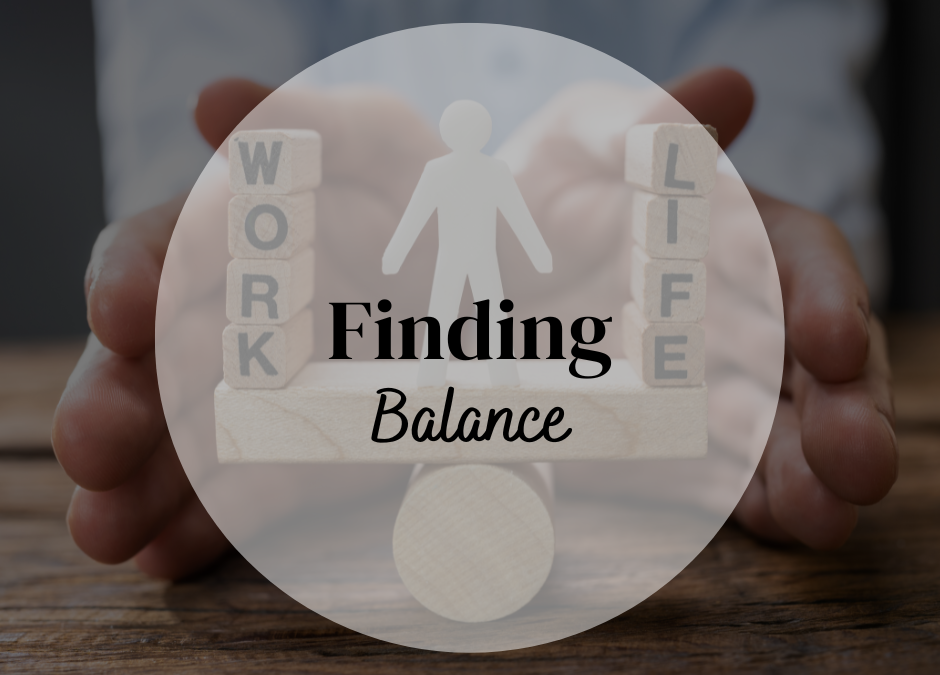
by Ace Concierge | Virtual Assistant | Jan 10, 2024 | Business Transformation, Business Values, Work Life Balance
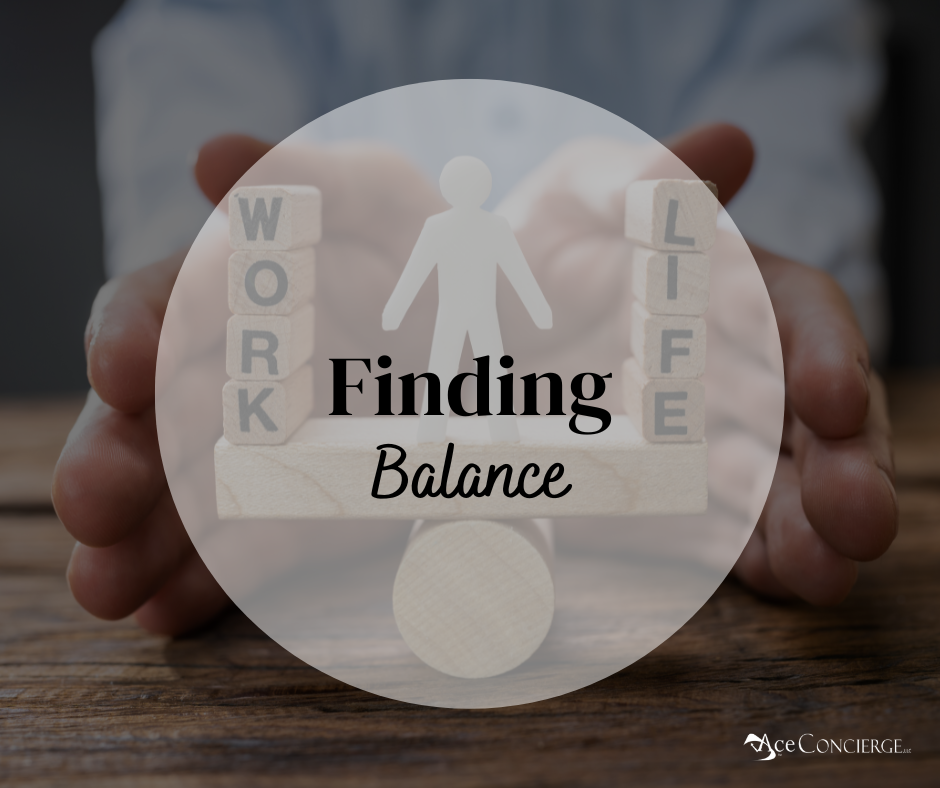
CEOs, often regarded as the superheroes of the business world, must keep their kryptonite in check to achieve work-life balance. The demands of the job have blurred the lines between work and personal life, leaving CEOs to feel like they are on call 24/7.
Despite the superhuman expectations, they are only human, and finding that sweet spot between work and personal life can be as tricky as navigating a minefield. The modern world’s constant barrage of emails, phone calls, and urgent matters can make it feel like the workday never ends, ultimately leading to burnout and stress, taking a toll on CEOs’ well-being.
The Work-Life Balance Myth:
The concept of work-life balance can often feel like an unattainable dream. The boundaries between work and home are blurred because of technology, leading to immense pressure for CEOs to be available round-the-clock. The instant accessibility makes it challenging for CEOs to disconnect from their work responsibilities.
The 24/7 Nature of Leadership:
CEOs are entrusted with the overall success and growth of their organizations. This responsibility comes with a 24/7 commitment, as crises can occur at any time, and critical decisions may need to be taken outside regular working hours. The demanding nature of the role often leaves CEOs with limited opportunities to switch off and enjoy personal time, impacting their overall well-being.
Strategic Planning vs. Personal Time:
CEOs must develop and implement long-term strategies to ensure the sustainability and success of their companies. This requires significant time and dedication, often cutting into personal or family time. Balancing the need for strategic planning with personal commitments becomes a delicate dance that many CEOs find challenging to master.
Family and Social Sacrifices:
One of the most significant sacrifices CEOs make in their pursuit of professional success is often felt in their personal lives. Long working hours, frequent travel, and the constant pressure to perform at a high level can strain relationships with family and friends. Important life events may be missed, and the emotional toll of such sacrifices can lead to feelings of isolation and loneliness.
The Weight of Decision-Making:
CEOs are faced with a multitude of decisions daily, each carrying its own set of consequences. The weight of these decisions can be emotionally draining, impacting the mental well-being of CEOs. The constant need to make tough choices and navigate through uncertainties takes a toll, making it crucial for CEOs to find effective ways to recharge and decompress.
The Role of Self-Care:
CEOs must recognize the paramount importance of self-care in their pursuit of work-life balance. While the demands of the role undeniably intensify, neglecting personal well-being can have severe repercussions. Engaging in regular exercise, ensuring adequate sleep, and practicing moments of mindfulness provide CEOs with the necessary resilience to navigate daily challenges.
Implementing Boundaries:
Establishing clear boundaries between work and personal life is essential for CEOs. Setting specific timeframes for work-related activities and creating dedicated periods for personal commitments help to maintain a healthier balance. Communicating these boundaries to colleagues, subordinates, and even family members is crucial for ensuring everyone is on the same page and respects the CEO’s need for personal time.
Delegating and Empowering:
CEOs often believe they must handle everything themselves. Delegating tasks and empowering capable team members is not a sign of weakness but a strategic move to ensure the sustainable growth of the organization and the well-being of the CEO. Trusting the team to handle certain responsibilities allows the CEO to focus on high-impact tasks and find pockets of time for personal pursuits.
Juggling work and life can feel like a circus act for CEOs. While there’s no magic formula, prioritizing self-care, implementing effective time management strategies, and finding that personal sweet spot can lead to a healthier and more fulfilling CEO journey.
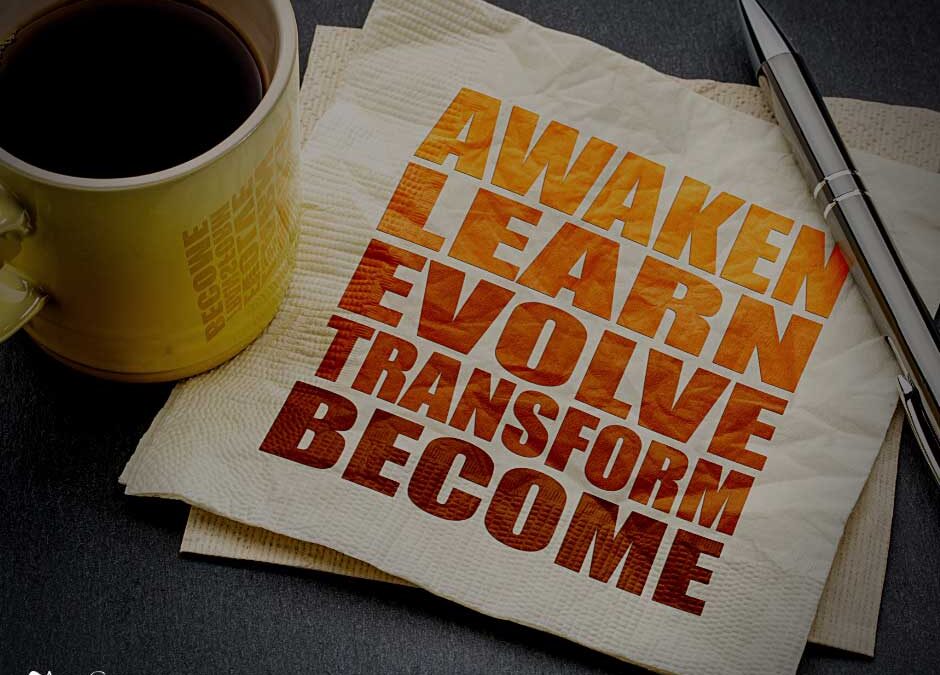
by Ace Concierge | Virtual Assistant | Aug 9, 2022 | Business Values, Customer Service, Leadership
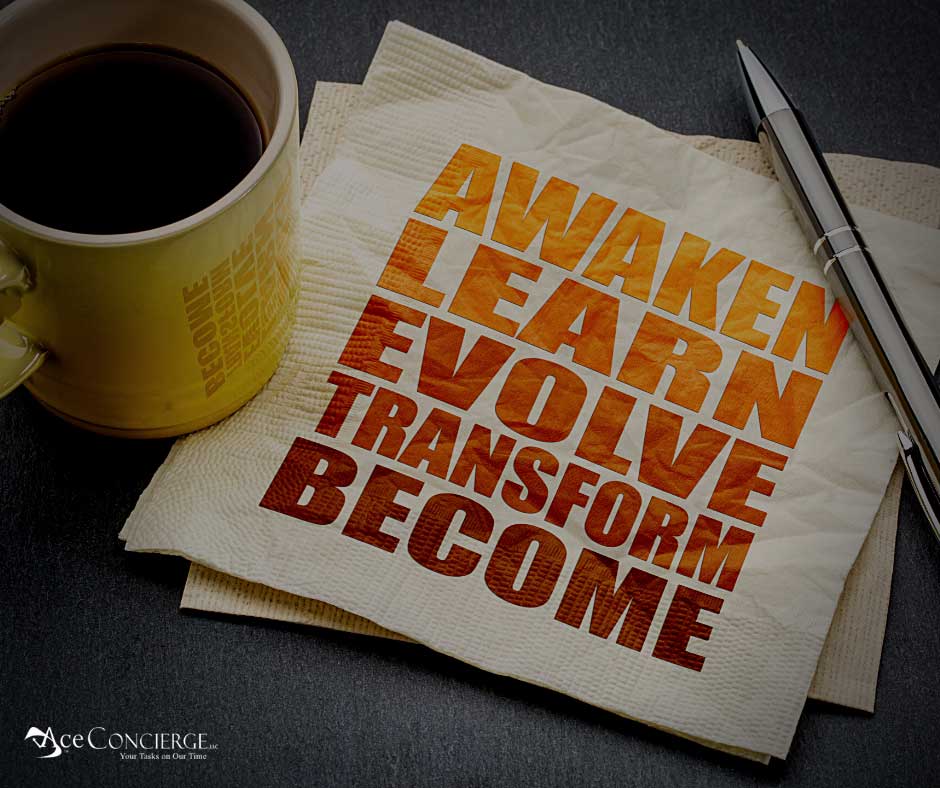
If you’re a business owner, you probably wonder if you should focus solely on being transactional or transformational. It’s important to recognize the difference between the two.
Transactional in business is all about what you are asking for. You sell a product or service, without deepening the relationship too much. But as a business owner, you wish to build a long-term relationship that comes from transformation. You want to use your product/service to change someone, enrich their lives, or teach them something they didn’t know before.
Business owners often focus on ‘transactional’ to-do’s because they feel more productive, but ‘transformational’ moves will help you in the long run
Most businesses focus on getting more customers & clients. The people who rise above these transactional relationships and transform them into something more meaningful are the companies who will thrive. They are the ones who will have a family of customers, clients, and friends that they do business with over time.
Transformational vs transactional: what’s the difference?
In short, a transit transaction is characterized by an exchange of value for value. In contrast, transformative transactions are characterized by an exchange of value for some sort of non-market good. Transformative transactions may be characterized by psychological relationships between seller and buyer that are more durable and trusting than those typified by transactions. Or transformative transactions may be characterized as providing some sort of benefit to one party that is not directly related to the market value of the good or service involved in the transaction but is valued nonetheless.
Transactional activities are those that help us check off our lists and feel productive (e.g., responding to emails), while transformational actions/behaviors are ones that increase productivity over time (e.g., building relationships). Consider this example, when trying to build muscle and increase fitness levels, it is not enough to lift heavier or run longer. Your body is a system and requires proper lifting technique, a solid program, sleep, mind/muscle connection, balanced hormones, micro/macronutrients and recovery. These essential components, along with so many other physiological elements is the nitty gritty groundwork for performance, endurance, strength, and hypertrophy. When a goal-oriented athlete does not consider the myriad of foundational building blocks, their success will not only be limited, but their body could actually enter a catabolic state.
7 strategies to support your long game
- Draft a list of what you want to accomplish through change and transformation
- Set aside time for an honest, deep dive into your organization, removing emotion and ego, how is the health of your business? Your staff? Revenue? Clients? All the things?
- Avoid burnout and overwhelm by focusing on one level of your business, i.e, operations, technology, human resources, business model, customer journey, etc
- Commit to solving problems at their core, the root cause, because a quick fix or bandage is just a transaction
- Focus on your future goals to help you create more meaningful strategic action steps
- Invest 100% in the process and mindset
- Gain staff buy-in through education and empowerment
If you maintain an emphasis on transactional business practices, you will find yourself dealing with clients who are less committed and not reaping the long-term benefits of solid relationships.
The goal of business success doesn’t mirror a travel itinerary, but instead, nurtures loyal client relationships, a strong corporate culture, and transforming the customer experience.
In the end, it’s really all about value. If you can prove to your customers (and all stakeholders) that you’re providing value, not just selling products and services, then you’ll be more successful than those who are simply trying to run their business in a transactional manner. Think about your own habits. Do you prefer businesses that treat you as a customer or as a valued member of their community?

by Ace Concierge | Virtual Assistant | Nov 18, 2014 | Business Values, Customer Service, Small Business
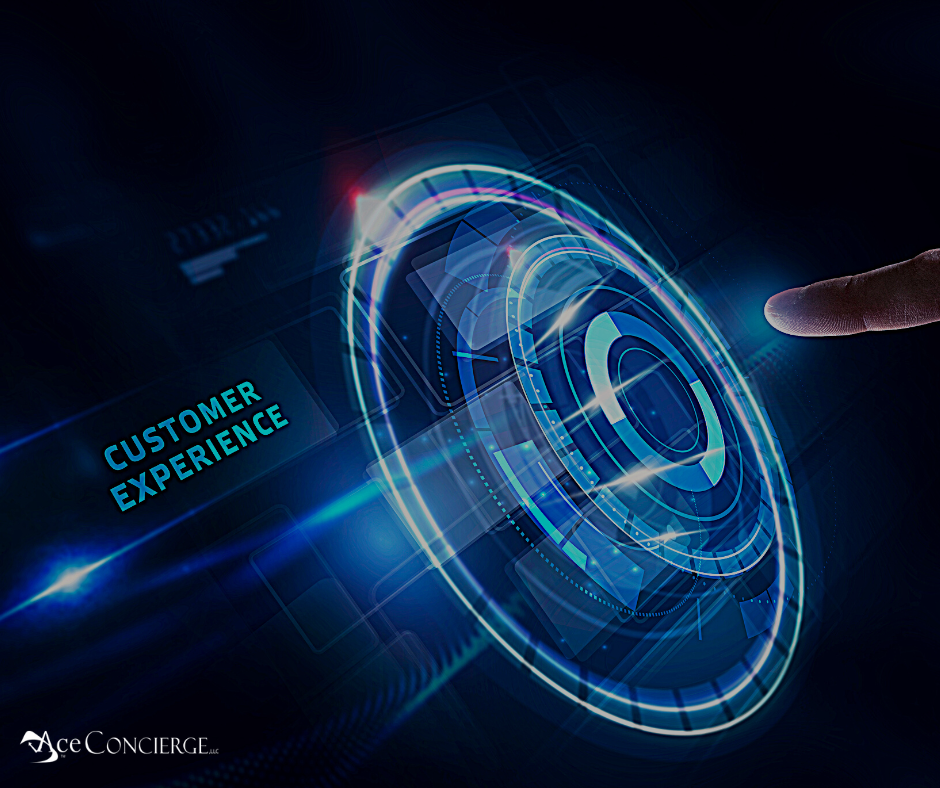
Earning a new client takes hard work, effort, and a real understanding of their needs and desires. A couple of posts or knowing your own value isn’t enough. You need to actually demonstrate your expertise, gain trust, and validate your ability to solve their most pressing problems.
Service vs Services
Your service, not services, is one of the key factors that can be your unique selling proposition. Your competitor may sell the same widgets, but it’s YOU who has the opportunity to capture your audience and offer something exceptional and distinctive.
Be compelling.
Putting an end to their troubles is what they want most. This is your real product. It is you, your service, and your ability to meet the customer/prospect needs that will drive your business. Their greatest pains are your selling features; how you’ll add to their lives like the genie in the magic lamp.
You’ll never have a product or price advantage again. They can be easily duplicated, but a strong customer service culture can’t be copied. Jerry Fritz
As an Executive Virtual Assistant, a few key areas where my clients struggle are:
- Not enough time to contribute to their day-to-day business operations
- Social media management
- Productivity
- Work-life balance
- Understanding the digital environment
- Focus and staying on task
- Project management
- Business development
These all essentially relate back to time; something they don’t have enough of, nor do most solopreneurs. Let’s just say I can create a highly sought-after commodity. Now if I could snap my fingers to solve “world peace” we’d all be better off.
Being in business isn’t just about the sale; it is about fulfilling needs, valuing your customer, and providing impeccable service. Remember, if you aren’t making love to your clients, prospects, or associates, someone else will.
Serve and deliver to generate not only happy customers but brand advocates; the foundation of your success. Shape your organizational culture around real pledges, results, and solutions to encourage the trust of your buyers and potential customers. Your business can’t survive online without it.
Your network is always looking for confirmation to ensure that a potential partnership or connection is dependable, trustworthy, and “real”
- Warrant the trust and loyalty of your audience; your community.
- Cultivate your relationships through trustworthy communications and reliability.
- Remove the feeling of vulnerability and risk of doing business with someone in the digital world.
“When you try to get close to people you build trust. Staying consistent with that strategy will not only build your influence and authority, but it will also help you make true connections! In order to create a personality that people will trust online, you have to learn how to make time to be personal.” Wade Harman
You are the architect of your business growth
Establish trust and comfort to build the foundation for a long-term partnership. Make it evident that you genuinely care about your clients and their goals. Your paycheck comes second to their ultimate satisfaction because, without them, there is no business. No success. Just a sign that says “Open.” You can’t eat that.
According to the report by Customers 2020: “The customer of 2020 will be more informed and in charge of the experience they receive. They will expect companies to know their individual needs and personalize the experience. Immediate resolution will not be fast enough as customers will expect companies to proactively address their current and future needs.”
Don’t be a statistic. Understand and acknowledge the inherent value of creating an impeccable customer experience. Innovate and be intuitive to stay at least one step ahead. Simple everyday measures to honor and respect your clients/prospects will far exceed any type of product you sell. It is the behind the scenes sincerity of thought that generates the win-win.
SERVE up some hearty unsurpassed service
What dining options do you provide?
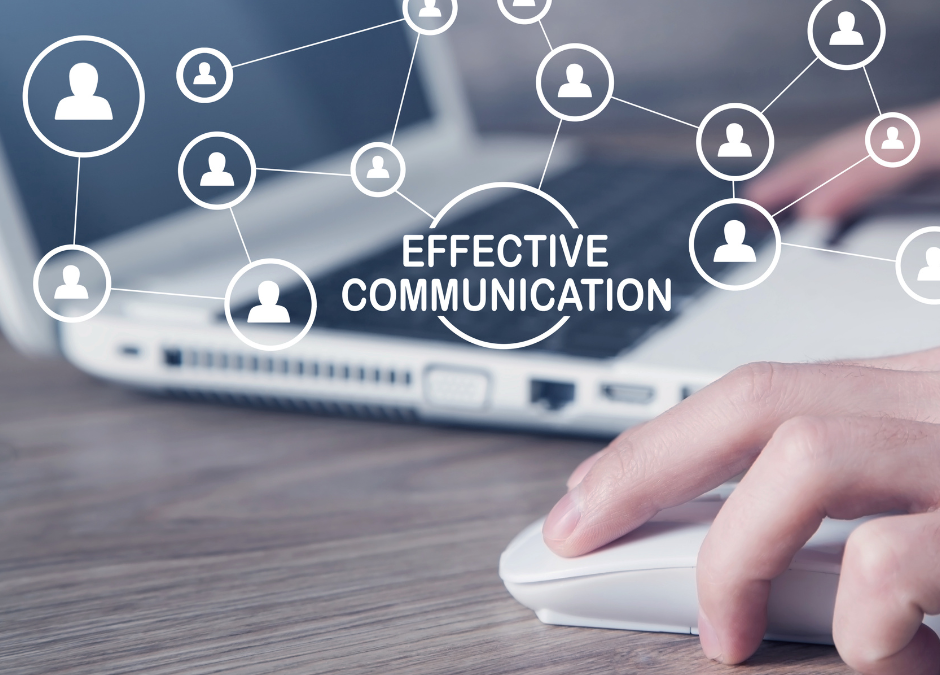
by Ace Concierge | Virtual Assistant | Oct 22, 2014 | Business Values, Communication, Customer Service

Successful relationships are launched with open and honest communications generating not only trust but a comfortable safety zone for conversation.
You can’t build a foundation with silence or filtered information. It doesn’t work.
Of course, you don’t want to harm feelings or be politically incorrect but if you choose to zip the lips, then you are doing a tremendous disservice to both yourself and the other party.
Misinformation, resentment, or incorrect assumptions may end up taking a leading role because you did not voice your opinion. In valued relationships, whether professional or personal, make sure you ask questions, maintain an open mind, listen, foster feedback, act, don’t react to the responses, and follow up with a summation and action steps of the discussion.
Knowing, tips, tools, and skillset to successfully perform your job is vital to your success but more important is your instinct and soft skills to help nurture your partnership. If your interpersonal communication skills need a little polish or you’re only in it for financial gain, then you may suffer the consequences.
It is so important to uncover what IS working as well as what ISN’T working otherwise the relationship could dissolve.
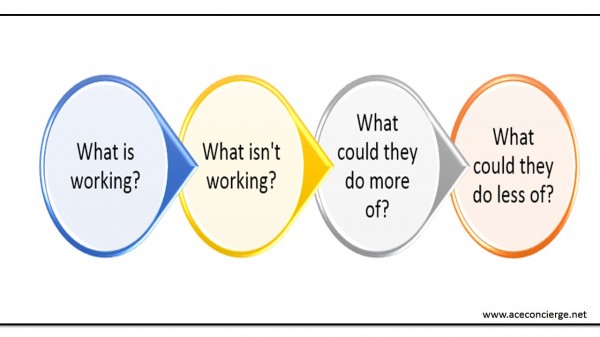
Confidence in Communications
Thriving vendor – client partnerships prosper with ongoing conversations that don’t merely revolve around sales or projects but also the dynamics of the process as a whole. Initiate the dialog with the desire to listen and communicate clearly. It is a two-way street and you each have something important to say. Encourage a secure, non-judgmental environment.
“Too many business owners and sales people try to sell their product or service, neglecting the fact that their customer is a person. In fact, the customer is a person who has feelings, influences and a mind of their own. They want to be connected with, and to trust and believe the person from which they are buying.” Rebecca Wilson
Honestly, how many times have you thought?
“I wonder when Mr. Park N. Later will send me the files to finish the project?”
“I don’t believe Ms. Jan C. Never followed up on my email last week?”
“Wow! Mr. Bee Frankly is right on top of my feedback survey. This is a great day.”
Do you know what runs through your client’s mind? Are they 100% satisfied with your products AND service?
Recognize there is a vast difference between service and services. Create the ultimate customer experience with unsurpassed service and they will continue to buy your services.
ASK! Don’t assume things are fine simply because you have a contract.
Don’t wait for issues to arise.
Outline your CHIPS™ for Effective 2-Way Communications
CHIPS™: Client Handbook: Ignite Partner Success is your company framework or platform that shapes systems, processes, communications, and strategies for your everyday service and solutions. Let it be a guidepost of how you effectively relate to your stakeholders, creating detailed segments for each facet of your business, like a policy manual.
- Schedule periodic calls to check in to discuss what is working and what isn’t; where can you both improve
- Don’t rely on an email or text message. Things get lost in translation. Making the investment is a values-based opportunity to demonstrate your respect and interest in not just the sale but your client and relationship
- Jot down a few notes highlighting the good, the bad and the ugly
- Give each party plenty of time to speak, vent or otherwise share their thoughts regarding your partnership
- Understand YOUR role is to provide the best customer experience
- Be flexible and willing to compromise
- Understand your client’s point of view
- Clearly and kindly articulate your viewpoints
- Cultivate continuous improvement and dialog
- Summarize the call, reiterating what you heard
- Create action steps
- Ask for feedback about the call
- Before you hang up, commit to the next conversation
Communication leads to community, that is, to understanding, intimacy and mutual valuing. Rollo May
Embrace every relationship you have by investing in authentic conversations because you care enough to want it to succeed.
Because you want to build empowered, valued partnerships.
Because it feels good. It is fulfilling.
Never shy away from asking the real questions, the most difficult questions of what is working and what isn’t working.
Who will you call today?
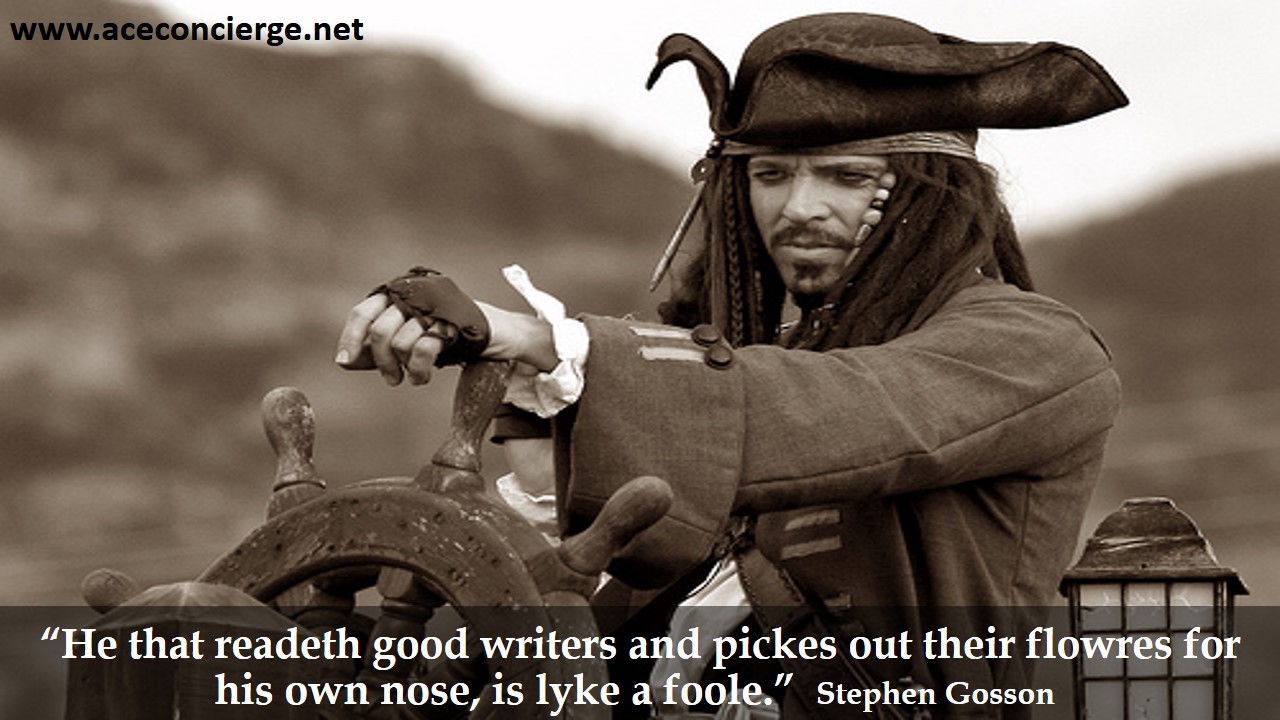
by Ace Concierge | Virtual Assistant | Jul 23, 2014 | Business Values
 What does a Senior Director of a Jacksonville Florida real estate agency have in common with Ace Concierge? Not a hell of a lot except copyright infringement of an old blog post of mine. I was doing some research to repurpose a post and there it was; with the exact same title and contents. While I have read that copying and/or mimicking are forms of flattery, I personally find that stealing another’s content is very unethical, lazy and unprofessional. There is no moral compass.
What does a Senior Director of a Jacksonville Florida real estate agency have in common with Ace Concierge? Not a hell of a lot except copyright infringement of an old blog post of mine. I was doing some research to repurpose a post and there it was; with the exact same title and contents. While I have read that copying and/or mimicking are forms of flattery, I personally find that stealing another’s content is very unethical, lazy and unprofessional. There is no moral compass.
In today’s high tech world, it isn’t all that difficult to search and locate those who have violated copyright laws. This certainly isn’t the first time I have found my words stolen and I’m sure it won’t be the last. It is extremely frustrating and quite disheartening that people can’t create their own content or at least ask for permission and give credit. I have even had client testimonials copied word for word. What does it say about their morals?
While there is a bit of gray area and some of the laws are open to interpretation, it still stands that pirating content crosses the boundaries of professional behavior. If the offender can do this without thought or care, what other practices are instituted within their business? It is humorous when they post their values and mission statements about ethics yet they have stolen content or they have copyrighted their own site. What irony.
I have written various cease and desist letters, included the DMCA as well as the TOS from website hosts regarding their policies on copyright infringement and fortunately all of the content has been successfully removed.
The Copyright Act provides two primary remedies: (1) it allows the owner of the copyrighted material to stop the infringement and (2) obtain damages and attorney fees from the infringer. Both types of relief are available even if the copyrighted material has not been registered with the United States Copyright Office before the infringement occurs. The Digital Millennium Copyright Act provides additional rights. Specifically, it allows the copyright holder to require the Internet service provider (ISP) hosting the infringer’s website to delete the plagiarized contents. If the ISP does not comply, it can be sued for “contributory infringement.” 2. In case the offending webmaster does not take the prospect of the above action seriously then you should also clearly state you intend to file a notice of Digital Millenium Copyright Act (DCMA) infringement with search engines such as Google and Yahoo. This action can potentially ruin a web business as the search engines take a dim view of plagiarism and can remove an offending site from their search results should an infringement claim be justified.
What can you do to locate and reclaim your content from these dishonest offenders?
- Use copyscape to find your plagiarized content
- Locate the website owner on whois
- Send a cease and desist letter. It is advisable to include screenshots of your material
- Trace your content history with Internet Archive Wayback Machine
Under Title 17, United States Code, Section 512(c)(3)(A), the Notification of Claimed Infringement must include ALL of the following:
- Physical or electronic signature of a person authorized to act on behalf of the copyright owner.
- Identification of the copyrighted work claimed to have been infringed or a representative list if multiple works are involved.
- Identification of the material that is claimed to be infringing that should be removed or access to disabled and information reasonably sufficient to enable the online service provider to locate the material (usually a URL to the relevant page with description of items on that page claimed to be infringing).
- Information reasonably sufficient to allow the online service provider to contact the complaining party (address, phone number, e-mail address).
- Statement that the complaining party has “a good faith belief that use of the material in the manner complained of is not authorized by the copyright owner, its agent or the law.”
- Statement that the information in the notice is accurate, and under penalty of perjury, that the complaining party is authorized to act on behalf of the copyright owner.
Finding your content on someone’s website is quite unnerving. The gall they have to pirate your hard work and dedication to writing breaks the rules and crosses the confines of professionalism,integrity and character. People do it everyday, without a second thought, leaving their principles to be questioned. It may just represent a blog post but they didn’t write it, nor do they own it. A simple inquiry for permission to repost or repurpose is not a time suck but a professional courtesy. A sign of respect and value.
Plagiarism isn’t going away anytime soon but you do have options to recover your content as your own. Only you can decide if it is worth your time and energy to pursue.
What measures do you take to recover or protect your content?
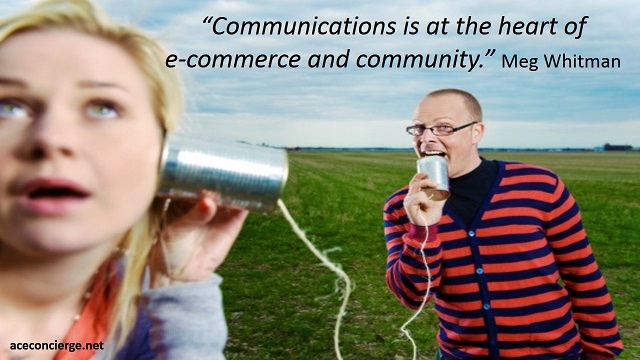
by Ace Concierge | Virtual Assistant | Mar 6, 2014 | Business Values, Communication
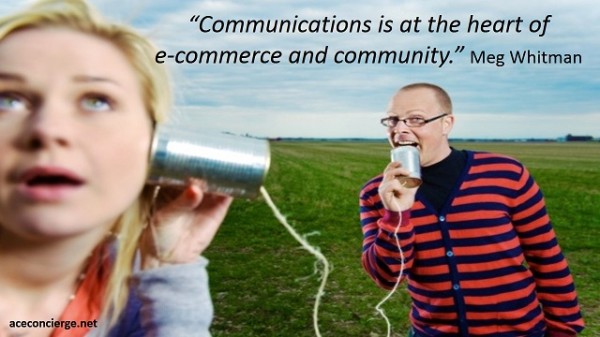 You believe yourself to be a professional but are you professional? There is a difference.
You believe yourself to be a professional but are you professional? There is a difference.
You may be deemed a professional because you operate a business but being professional is an action. It is a choice. In business and life, there are plain and simple human courtesies that should be extended to everyone. It shouldn’t matter who initiated the contact but when you choose to no longer engage or ignore any form of correspondence, you are no longer “being” professional.
What has happened to the Golden Rule in this age of technology? Does it allow or justify actions that would not be normally accepted in an in-person venue? If you were at a networking event, engaging in a conversation would you suddenly decide to turn your back and walk away without notice or a word? I think not. That would be extremely rude and thoughtless.
 Can you imagine calling someone of interest, exchanging a few words and then they hang up without forewarning? What would you think? How would you feel?
Can you imagine calling someone of interest, exchanging a few words and then they hang up without forewarning? What would you think? How would you feel?
For some it may present a challenge to be completely forthright and honest with feedback and responses but if you expect the same from your network, then give back what you want in return. Everyone deserves an answer. Communicating is the foundation of every single relationship, whether business or personal, online or off.
What message are you sending to your audience, your potential buyers if you aren’t responding to social comments or posts? Your brand and reputation may suffer. As you know, word spreads fast and if you aren’t satisfying the human need for a reply to a query, you may be opening yourself up to negative reactions. Make the time to respond.
“If you’re not engaging customers during the entire product life cycle through social media, you’re missing out. Because someone else will.” –Dennis Stoutenburgh
If you ignore emails because you don’t know how to respond or are apprehensive about expressing your opinion about a product or service, don’t expect to retain a follower or gain a brand ambassador. People can deal with rejection and feedback; extend thoughtfulness with a reply.
“We’ve seen an increase in the nonresponse rather than just politely declining. You delete it and hope it goes away, just like if someone comes to your door and you pretend you’re not home.” Adam Boettiger, digital marketing consultant.
You are online, participating in your social networks, building your brand, credibility, community and network. Is it truly worthwhile or beneficial to disregard the voice of others? Deliberate silence is a poor communication strategy demonstrating a lack of respect and interest and also has the capabilities of reinforcing potential miscommunications.
Your active choice NOT respond is a very loud statement. With all of the techie gadgets sitting on your desk or in your lap, click a few keys. There is always time and a tool.
“Mobile communications and pervasive computing technologies, together with social contracts that were never possible before, are already beginning to change the way people meet, mate, work, war, buy, sell, govern and create.” Howard Rheingold
Simply put: BE Professional
- Be kind.
- Be courteous.
- Be responsive.














